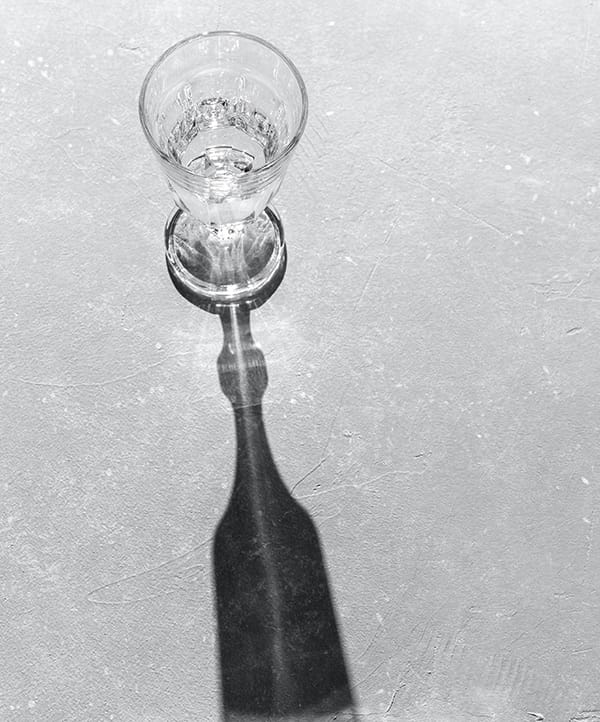Treatment & Rehab for Alcohol Addiction
Alcohol Addiction
We offer bespoke treatment & rehab for alcohol addiction.
Alcohol, specifically ethanol, is the intoxicating component found in beverages like beer, wine, and spirits. It is a psychoactive substance, which means it affects the way the brain works, triggering changes in mood, perception, thoughts, feelings, and behaviour.
It is produced through the fermentation of sugars by yeasts and has been consumed by humans for thousands of years. Commonly associated with celebrations and socialising, however, alcohol is toxic. It can affect the body’s health, leading to serious physical and mental health conditions, and causing both psychological and physical dependence, and addiction.
Problem drinking, alcohol misuse, alcoholism, and alcohol use disorder are all terms which refer to a manner of alcohol consumption that is harmful to health, finances, or relationships, and in some cases all three, i.e., the excessive, compulsive, and repeated use of alcohol despite continuing negative consequences. It can also mean that you are dependent on alcohol, emotionally or physically.
According to some experts, the electrical brainwaves in people suffering from alcoholism differ from those who are non-alcoholic, meaning that alcoholism is a physical and psychological disease.
In the UK – there are nine million problem drinkers, and 7% of the adult population has alcohol dependence. Around 33,000 people die yearly because of alcoholism, and many more suffer health problems such as liver disease, pancreatitis, diabetes, and heart problems.
Worldwide – 3 million deaths a year are attributable to alcohol use, and according to the World Health Organization it is the leading risk factor for premature mortality and disability among those aged 15 to 49 years.
Request a callback!
The harmful use of alcohol.
Compulsive sexual behaviour can have far-reaching impacts on various aspects of an individual’s life, including:
Short-term effects of alcohol misuse.
- → Impaired judgment and coordination: Alcohol affects the central
- nervous system, leading to impaired judgment and coordination, increasing the risk of accidents and injuries.
- → Alcohol poisoning: Consuming large amounts of alcohol in a short period can lead to alcohol poisoning, a potentially fatal condition.
- → Risky behaviours: Alcohol can lower inhibitions, leading to risky behaviours such as unsafe sex, drug use, and violence.
Long-term effects of alcohol misuse.
- → Liver damage: Chronic alcohol use can lead to liver diseases such as fatty liver, hepatitis, and cirrhosis.
- → Cardiovascular issues: Excessive alcohol consumption increases the risk of high blood pressure, heart disease, and stroke.
- → Mental health problems: Prolonged alcohol use can contribute to mental health disorders like depression and anxiety and exacerbate existing conditions.
- → Addiction: Continuous use of alcohol can lead to dependence, making it difficult to function without it.
Potential signs of alcohol use disorder.
Alcohol use disorder (AUD) is the most common substance use disorder in the world. It can affect anyone, from any walk of life, at any time.
Drinking larger amounts, or more frequently.
Failing to keep up with responsibilities at home, or with work.
Harmful or even dangerous consequences to drinking
Problems in close relationships due to alcohol.
Struggling to stop or cut back
Engaging in risky or dangerous sexual behaviour.
Drinking to try and stop feelings.
Being secretive about amounts drunk or drinking alone.
Experiencing withdrawal symptoms, tremors, or cravings.
These are just some of the signs that there is an issue with the way you drink.
If you find you are drinking when you don’t really want to, you feel guilty about how much or when you are drinking, or that you are drinking despite it causing you either physical or emotional problems then it is a good idea to speak to someone.
* Diagnosis of any addiction/mental health disorder requires a thorough examination by a fully qualified, licensed medical professional.
Treatment for alcohol misuse, alcohol use disorder (AUD) and alcoholism.
If you, or a loved one is suffering due to issues with alcohol use, residential rehab treatment at Ibiza Calm may be the solution you need to start your journey to recovery.
Residential treatment, also known as inpatient treatment, provides a structured and supportive environment for individuals with problems related to alcohol and addiction.
Ibiza Calm is a specialised mental health and addiction treatment clinic that provides alcohol rehab for individuals who are struggling with alcohol misuse, alcohol use disorder, and alcohol addiction. The goal of the treatment is to help individuals understand the underlying causes of their problem with alcohol and develop the tools and strategies needed to maintain sobriety in the long term.
Key components of residential treatment include:
The rehab centre offers a comprehensive approach to recovery, including medical detox, therapy, and support groups. The Ibiza Calm team comprises experienced healthcare professionals, including doctors, nurses, and therapists, who work together to provide the highest level of care and support to each patient.
Detox: The first step, (when required) is a medically supervised detoxification, where licenced, qualified medical professionals manage withdrawal symptoms and stabilise the patient.
Individual therapy: Regular one-to-one sessions with a therapist help address underlying psychological issues and develop coping strategies.
Group therapy: Group sessions provide support and help individuals connect with others who are facing similar challenges.
Education: Patients learn about the nature of addiction, the effects of alcohol on the body and mind, and strategies for maintaining sobriety.
Family therapy: Involving family members can help repair relationships and build a supportive home environment.
Aftercare planning: Developing a plan for continued support and treatment after leaving the residential programme is crucial for long-term recovery.
Alcohol misuse, alcoholism, alcohol use disorder (AUD).
Alcohol misuse is the term used when you drink in a way that is harmful-to your health, finances, or relationships. It can also mean that you are dependent on alcohol, emotionally or physically.
Alcohol use disorder (AUD) is the medical terminology a doctor, therapist or clinician would use to describe someone presenting with signs of a problem with alcohol. It can refer to a diagnosis at varying stages – mild, moderate, or severe, and is usually characterised as having an impaired ability to stop or control one’s use of alcohol, despite repeated negative consequences. AUD is classed as a brain disorder.
Alcoholism, defined by the Oxford languages dictionary as, “addiction to the consumption of alcoholic drink; alcohol dependency,” is a word used in everyday language, it is not a clinical diagnosis but has become popular amongst fellowship groups and recovery-based programmes.

DO I HAVE A PROBLEM WITH DRINKING?
Ibiza Calm will help!
AN INTERNATIONAL TEAM OF PROFESSIONALS COMBINED WITH THE LATEST TECHNOLOGIES
Request a callback!

Anxiety, Depression and Bipolar Disorder
The mental health problems that most commonly co-occur with substance abuse are anxiety disorders, depression, and bipolar disorder.
It is estimated that 20% of people diagnosed with an alcohol or substance use disorder will also suffer from anxiety or another mood disorder.
Research shows that people with alcoholism are more than six times more likely to suffer from bipolar disorder than the general population, and almost four times more likely to have major depressive disorder.
At Ibiza Calm we carefully assess for anxiety, depression, and bipolar disorder on admission, and provide individualised therapy that is tailored to each client.
These conditions may have already been diagnosed, but often not, it is frequently difficult to identify a mental health disorder whilst the individual is continuing to use substances. Our medical director will assess if those ups and downs are a separate condition, or the result of a drinking/drug taking lifestyle, and what is the best way forward.
What if I want to help a loved one?
CAREFUL AND GENTLE EXPERTS
If family doesn’t intervene, who will?
We help families get their loved ones into addiction treatment.

How Ibiza Calm will help!
EXPERIENCED TEAM
NEWEST TECHNIQUES
BESPOKE TREATMENT
